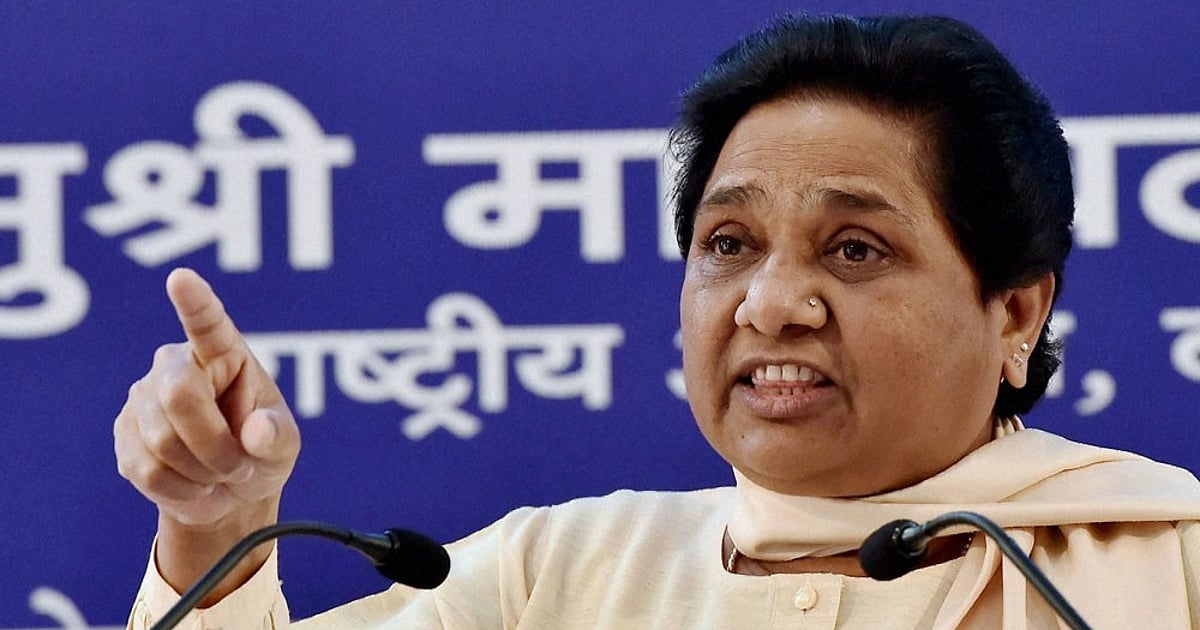 |
|
The political landscape in India is marked by a complex interplay of caste, religion, and ideology. The recent statement by Mayawati, leader of the Bahujan Samaj Party (BSP), highlights the ongoing tension and accusations of political maneuvering surrounding the legacy of B.R. Ambedkar, the architect of the Indian Constitution. Mayawati's sharp criticism of both the Bharatiya Janata Party (BJP) and the Indian National Congress (INC) underscores the perceived lack of commitment from major political parties to effectively represent and protect the interests of Dalits, a group for whom Ambedkar's contributions remain deeply significant. Her assertion that neither party is truly dedicated to the well-being and advancement of Ambedkar's followers speaks volumes about the perceived failure of mainstream politics to adequately address the persistent socio-economic challenges faced by this marginalized community.
Mayawati's call for a nationwide protest, scheduled for Tuesday, against Union Home Minister Amit Shah's remarks on Ambedkar, reveals a deliberate strategy to mobilize support and exert pressure on the ruling BJP. The choice of a nationwide protest demonstrates an attempt to broaden the scope of the issue beyond regional concerns, highlighting the perceived nationwide impact of what Mayawati considers to be an undermining of Ambedkar's legacy. The specific nature of Shah's remarks, which triggered this strong reaction, becomes a crucial factor in understanding the context of the protest and the underlying political dynamics. Analyzing the precise content of Shah's statements and Mayawati's interpretation of those statements is necessary to fully grasp the gravity of the situation and the motivations behind the protest.
The significance of this event extends beyond a simple political disagreement. It highlights the ongoing struggle for social justice and political representation in India. The Dalit community, historically subjected to discrimination and marginalization, continues to face significant challenges in accessing education, employment, and basic human rights. Ambedkar's legacy remains a powerful symbol of hope and resistance for this community, and any perceived attack on his memory or the principles he championed is likely to ignite strong emotional responses. The effectiveness of Mayawati's protest in galvanizing support among various communities will serve as a key indicator of the current political climate and the level of dissatisfaction with the existing political establishment's efforts to address the concerns of marginalized groups.
Furthermore, the strategic timing of the protest, its nationwide reach, and the participation from various communities will significantly influence its impact on the political discourse in India. The response of the BJP and the Congress to this protest will be closely scrutinized, offering valuable insights into their commitment to inclusive governance and their responsiveness to the concerns of the Dalit community. The success or failure of Mayawati's protest will not only impact the immediate political landscape but will also influence future strategies employed by political parties attempting to secure the support of Dalit voters. The broader implications of the event extend to discussions on social justice, the role of political parties in addressing caste-based discrimination, and the evolving political dynamics in India.
In conclusion, Mayawati's accusations and the subsequent planned protest represent a significant moment in Indian politics. It reflects not only a political strategy but also a deeper struggle for recognition, justice, and the preservation of a legacy that remains incredibly powerful for a significant section of the Indian population. The coming days will offer a crucial opportunity to observe how the political landscape reacts to this assertion and the subsequent nationwide protest, ultimately shaping the discourse surrounding Dalit rights and political representation in India.
Source: Neither BJP nor Congress committed to protecting interests of Ambedkar's followers: Mayawati
